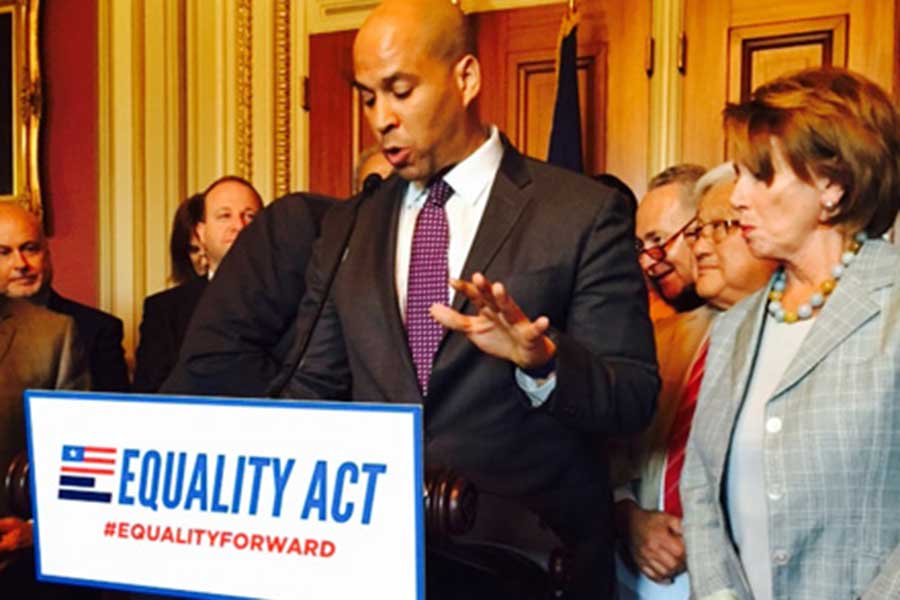Historic legislation was introduced last week to advance LGBT rights.
The Equality Act would ban discrimination based on sexual orientation and gender identity in a number of sectors — employment, federal funding, public accommodations, jury service. While many pundits have forecasted that the legislation will not be moving forward any time soon, the measure does, at the least, provide a framework for the direction of the LGBT-rights movement in post-marriage-equality America.
Additionally, it sheds light on the reality that, while same-sex couples can marry now in all 50 states, in most they can easily be turned away from jobs, rentals, public programs and countless other opportunities. The broad scope of the legislation has been deemed by some opponents to be too far-reaching, but that protections are still lacking in so many areas is evidence of their very need.
The legislation has more than 160 cosponsors in the House and about 40 in the Senate. However, not one Republican has signed on in support.
LGBT discrimination is an issue that the vast majority of Americans — across barriers of political parties, religious beliefs, age — agree should be eradicated from our country. It’s not a topic that was as divisive as marriage equality was, and even still is in some realms. Yet, not one Republican lawmaker took the opportunity to lead on this issue.
Locally, all five Democratic Congressmen from Pennsylvania added their name to the bill; however, the 13 Republican Congressmen shouldn’t be given a pass. While some represent more conservative areas of the state, others come from districts that include Philly neighbors Bucks, Chester, Delaware and Montgomery counties. LGBT discrimination is not strictly a cause for Democrats to care about; it’s time for Republicans to start stepping up to the plate and in line with their constituents.
Additionally, Democratic Sen. Bob Casey was not among the 40 cosponsors in the Senate. As an LGBT ally and lead sponsor on an LGBT-inclusive anti-bullying initiative, Casey’s support for this legislation is expected.
Even though this legislation isn’t expected to be approved any time soon, constituents deserve to know where their lawmakers stand on issues of basic LGBT equality.
